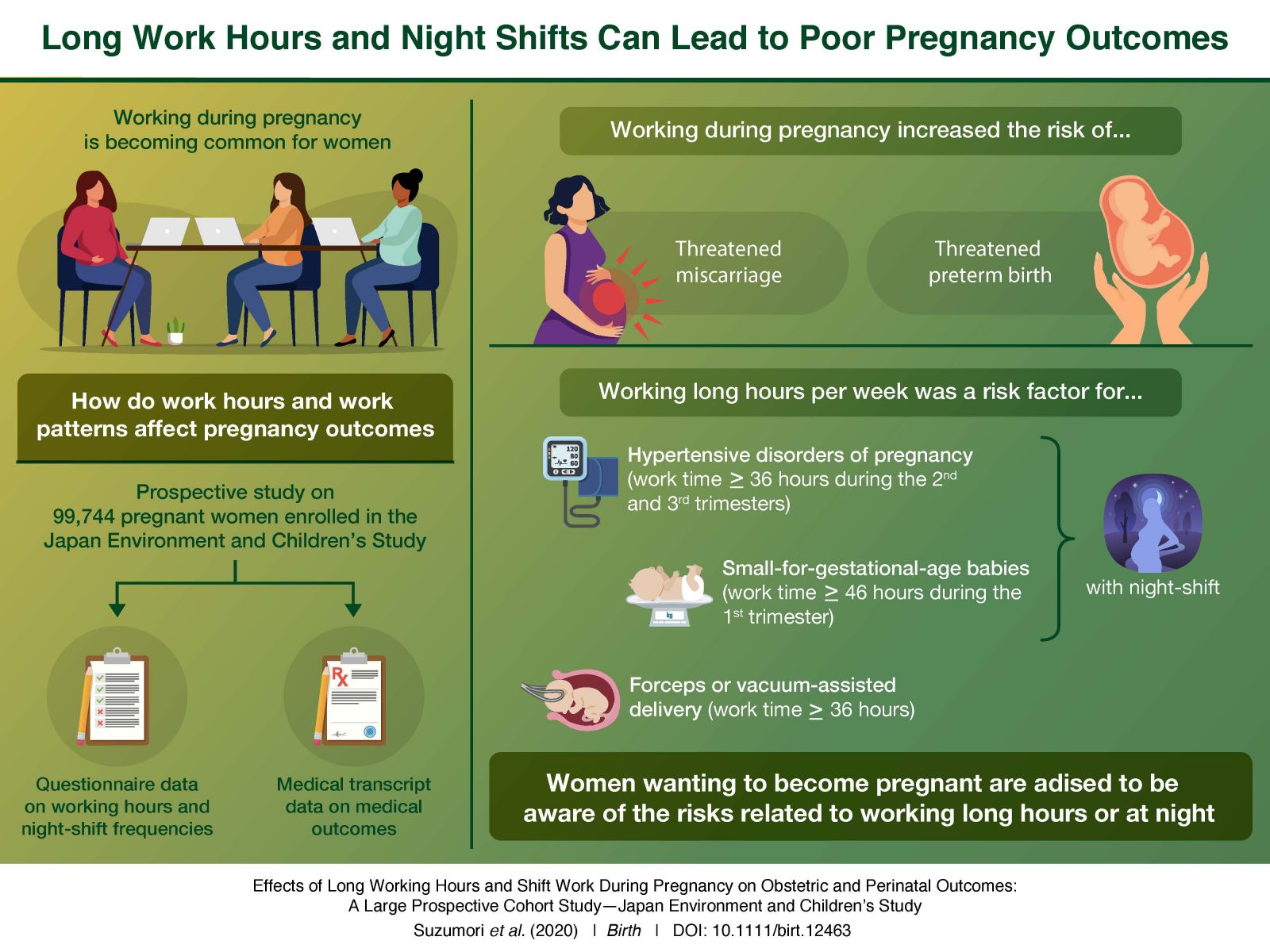

Working during pregnancy is becoming increasingly common for women professionals worldwide. However, this situation has prompted concern about the effects of strenuous work activities on pregnancy outcomes. Several retrospective studies have yielded evidence that working long hours while pregnant can lead to poor outcomes, and researchers associated with the Japan Environment and Children’s Study wanted to learn more. They therefore analyzed prospectively collected data of 99,744 pregnant women who participated in the Japan Environment and Children's Study.
These analyses showed that working long hours and at night during pregnancy were risk factors for several adverse outcomes, including threatened miscarriage and threatened preterm labor. In women who worked night shifts, the chances of developing hypertensive disorders of pregnancy were higher when work time exceeded 36 hours, while chances of delivering smaller-than-average-sized babies increased with work time of more than 46 hours. Working for more than 36 hours, irrespective of night shifts, increased the chances of having forceps/vacuum-assisted deliveries. Further research will help expectant mothers strike the right balance between work and health.
What is it about?
The researchers used data from a large cohort of pregnant women in Japan to examine how work patterns during pregnancy affect maternal and child health.
Why is it important?
Researchers have previously been uncertain about the health effects of working long hours and night shifts during pregnancy. This study provides much-needed clarification.
What this study adds
Women who work during pregnancy are more likely to experience threatened miscarriage or threatened preterm labor and to need a vacuum device or forceps during delivery. Working for long hours and at night during early pregnancy can hinder fetal growth and working long hours during mid-to-late pregnancy is a risk factor for hypertensive disorders of pregnancy.
Evidence before this study
In recent years, other research groups have published retrospective cohort studies that suggested that working for long continuous periods during pregnancy contributes to a woman’s risk of experiencing adverse pregnancy outcomes, such as low birth weights, hypertensive disorders of pregnancy, pregnancy loss, and preterm labor.
* The findings and conclusions of this paper and the lay-summary article are solely the responsibility of the authors and Science writer of this article, and do not represent the official views of the Japanese government.
Title of the paper: Effects of long working hours and shift work during pregnancy on obstetric and perinatal outcomes: A large prospective cohort study—Japan Environment and Children’s Study
Authors: Nobuhiro Suzumori, Takeshi Ebara, Taro Matsuki, Yasuyuki Yamada, Sayaka Kato, Toyonori Omori, Shinji Saitoh, Michihiro Kamijima, Mayumi Sugiura-Ogasawara, Japan Environment & Children’s Study Group
Journal: Birth. 2020 Mar;47(1):67-79.

This contents and the article contribute the following Sustainable Development Goals:



